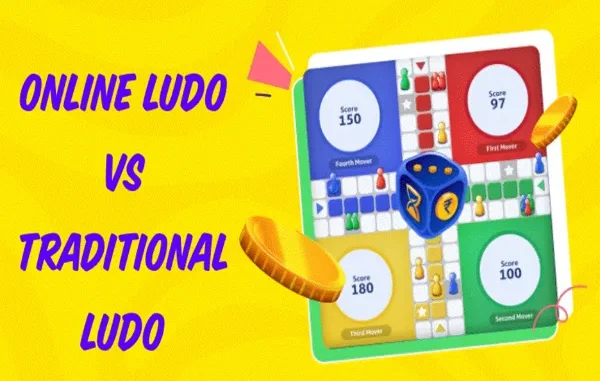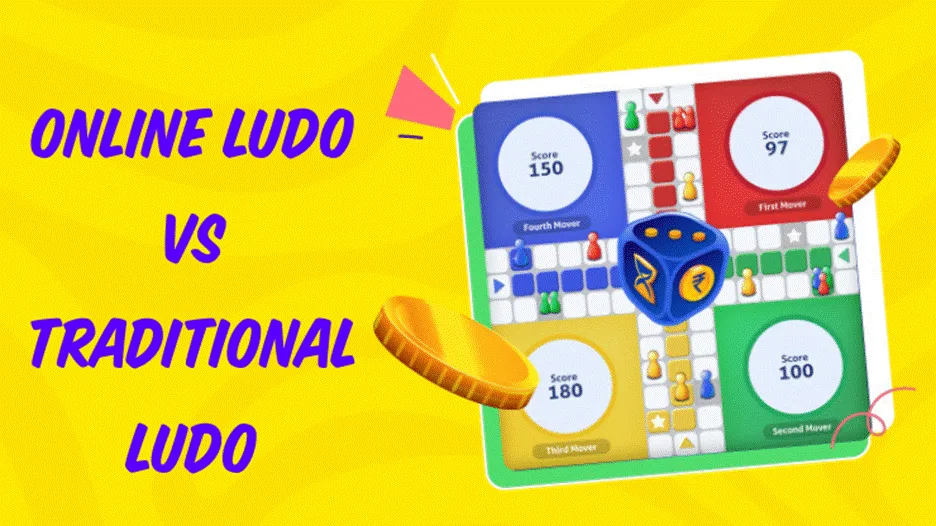

Ludo has been a part of Indian homes for generations—played on the floor, surrounded by family, and filled with cheerful banter. But with changing times, the classic board game has moved smoothly to the digital world. Online Ludo offers the same thrill with added convenience, faster gameplay, and real-time competition. While the essence remains the same, the experience has evolved in exciting ways that suit today’s lifestyle.
This shift is especially clear on platforms like Zupee, where Ludo isn’t just digital—it’s dynamic. With timed matches, real opponents, and skill-based formats like Ludo Supreme, Ludo Turbo, and Ludo Supreme League, players get a fresh take on a classic favourite. It’s traditional Ludo reimagined for those who love the game, but want to play it on their terms—anytime, anywhere.
Game Setup Comparison
The most significant difference between traditional and online Ludo is how the game is accessed and played.
Traditional Ludo requires a physical board, dice, and tokens. Everyone has to be in the same room to start the game, making it more of a planned group activity.
Online Ludo requires none of that. All you need is a smartphone and an internet connection. Platforms like Zupee allow you to join a match instantly, whether a two-player quick match or a complete four-player contest. You don’t have to wait for others to gather; the game begins when you’re ready.
Rules and Gameplay Differences
Both versions stick to the basic idea: moving tokens from the start to the home. However, in online Ludo, especially on Zupee, the gameplay has been tweaked to make matches faster and more strategic.
Here’s how it differs:
- In most Zupee games, tokens start on the board—there’s no need to roll a six to begin.
- Game formats like Ludo Supreme and Ludo Turbo are time- or move-based, not dependent on completing all four tokens.
- Every move helps you gain more points, and the player with the highest score wins.
These changes make online Ludo more action-packed and better suited to short sessions, perfect for quick breaks or evening fun.
Social and Competitive Elements
Traditional Ludo brings people together in person—whether it’s during a holiday, family gathering, or a relaxed weekend. The social bonding is face-to-face, often filled with banter, laughter, and shared memories.
Online Ludo brings its version of connection. On Zupee, for example, you can:
- Play with friends across different locations using invite-based matches.
- Compete in real-time against players across India.
- Climb leaderboards in competitive formats like Ludo Supreme League.
It turns casual gaming into a mix of fun and competition, allowing users to stay connected while challenging themselves.
Digital Features vs Physical Board
The physical board game has charm—the feel of rolling dice, moving colourful tokens, and being in the same room. But online Ludo has added features that enhance convenience and gameplay:
- No risk of losing tokens or damaging the board.
- Engaging visuals, sound effects, and animations.
- A variety of formats and themes to keep the game fresh.
- Real-time scoring, game history, and intelligent matchmaking.
- Secure UPI and bank withdrawals for prize money.
Platforms like Zupee go further with RNG certification, ensuring fair play, bot-free games, 24/7 customer support, and regular updates to improve the experience.
Conclusion
Both traditional and online Ludo have their place. One brings nostalgia and real-world connection, while the other offers speed, flexibility, and the thrill of competing anytime.
If you enjoy playing Ludo but want the ease of joining a quick game, competing with real players, or exploring new formats, Zupee offers the best of that world. With multiple skill-based game types and secure gameplay, Ludo gives a modern twist—no board or dice needed, just your skill and strategy.






Leave a Reply